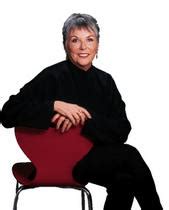A Quote by Chimamanda Ngozi Adichie
I think it's important to humanize history; fiction can help us remember. A lot of books I've read in the past have been so much more important than textbooks - there is an emotional connection with one particular person. I'm very much of a research-is-important type of fiction writer, even for contemporary fiction. I wrote about blogs in America and I've never blogged. But I read many, many blogs - usually about feminist things, or about race, or about hair.
Quote Topics
About
America
Been
Blogs
Books
Connection
Contemporary
Contemporary Fiction
Emotional
Emotional Connection
Even
Feminist
Fiction
Fiction Writer
Hair
Help
History
Important
In The Past
Lot
Many
More
Much
Never
Particular
Past
Person
Race
Read
Remember
Research
Textbooks
Than
Things
Think
Type
Us
Very
Writer
Wrote
Related Quotes
I guess...on one hand, I spent way too much time watching science fiction and reading science fiction when I was growing up. But a part of it is I also never felt much of a connection to the world in which I lived while I was growing up, and so, oddly enough, I think I felt a lot more connected to the worlds that I read about in science fiction.
I often tell people who want to write historical fiction: don't read all that much about the period you're writing about; read things from the period that you're writing about. There's a tendency to stoke up on a lot of biography and a lot of history, and not to actually get back to the original sources.
Everybody should read fiction… I don’t think serious fiction is written for a few people. I think we live in a stupid culture that won’t educate its people to read these things. It would be a much more interesting place if it would. And it’s not just that mechanics and plumbers don’t read literary fiction, it’s that doctors and lawyers don’t read literary fiction. It has nothing to do with class, it has to do with an anti-intellectual culture that doesn’t trust art.
I think that I had read so much fiction that the craft itself sort of sank into me. I didn't read any 'how to' books or attend any popular-fiction-writing classes or have a critique group. For many years into my writing, I didn't even know another author. For me, a lot of reading was the best teacher.
All fiction, if it's successful, is going to appeal to the emotions. Emotion is really what fiction is all about. That's not to say fiction can't be thoughtful, or present some interesting or provocative ideas to make us think. But if you want to present an intellectual argument, nonfiction is a better tool. You can drive a nail with a shoe but a hammer is a better tool for that. But fiction is about emotional resonance, about making us feel things on a primal and visceral level.
A couple of pieces of advice for the kids who are serious about writing are: first of all, to read everything you can get your hands on so you can become familiar with different forms of writing: fiction, non-fiction, poetry, journalism. That's very important. And also keep a journal. Not so much, because it's good writing practice. Although it is, but more because it's a wonderful source of story starters.
I would say that most of my books are contemporary realistic fiction... a couple, maybe three, fall into the 'historic fiction' category. Science fiction is not a favorite genre of mine, though I have greatly enjoyed some of the work of Ursula LeGuin. I haven't read much science fiction so I don't know other sci-fi authors.
It had also been my belief since I started writing fiction that science fiction is never really about the future. When science fiction is old, you can only read it as being pretty much about the moment in which it was written. But it seemed to me that the toolkit that science fiction had given me when I started working had become the toolkit of a kind of literary naturalism that could be applied to an inherently incredible present.
I remember reading an interview with a writer who said that in nonfiction if you have one lie it sort of messes it up. But in fiction the real details give you so much more credibility, because people do so much research just to write fiction. In fiction you're trying to recreate something lifelike.
Science fiction is the most important literature in the history of the world, because it's the history of ideas, the history of our civilization birthing itself. ...Science fiction is central to everything we've ever done, and people who make fun of science fiction writers don't know what they're talking about.





































